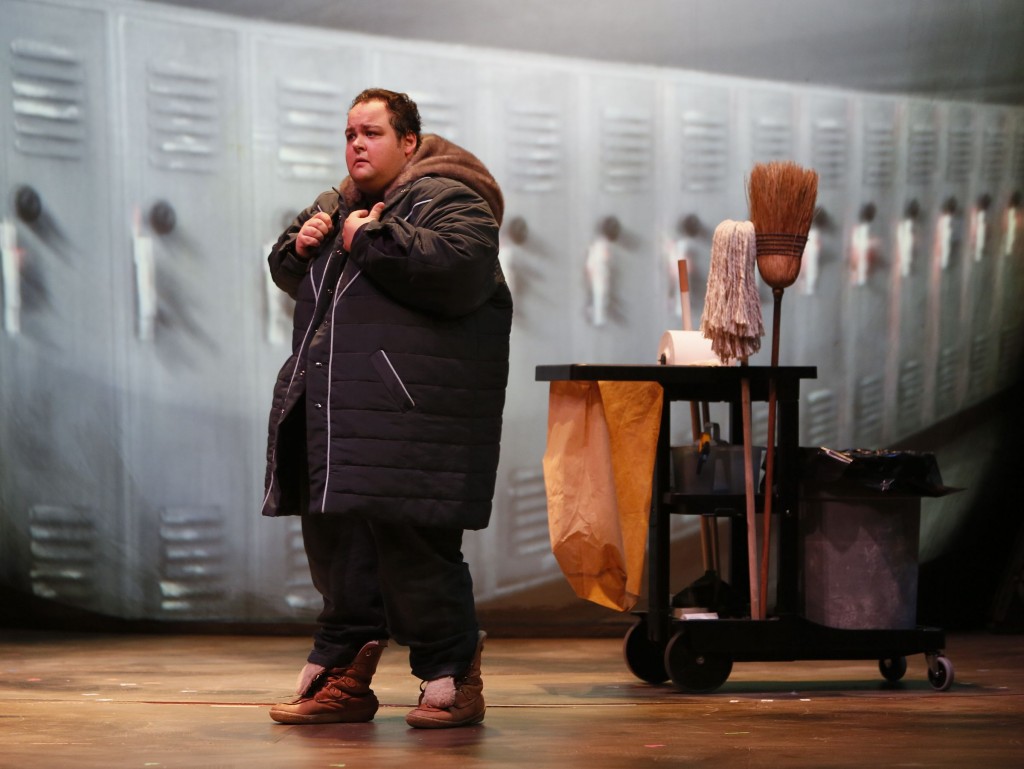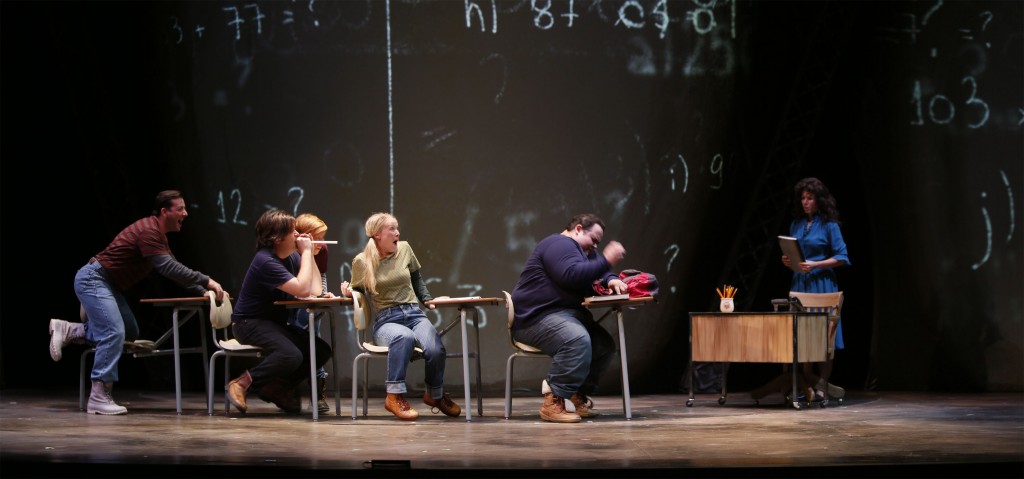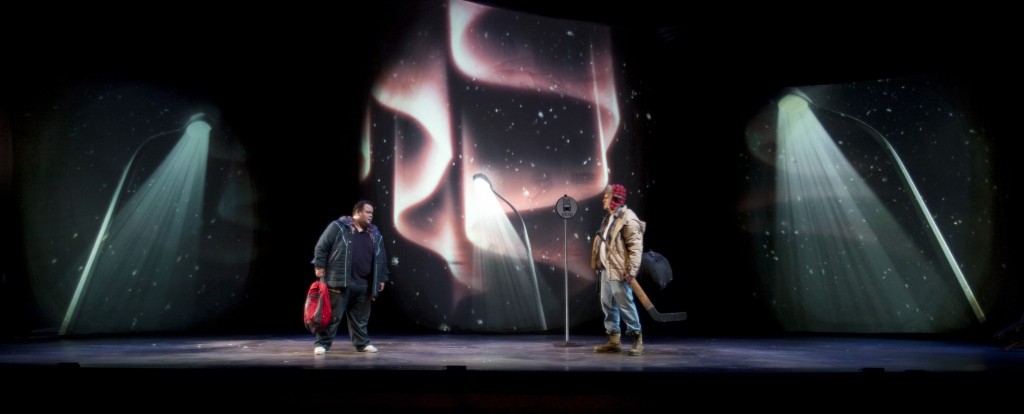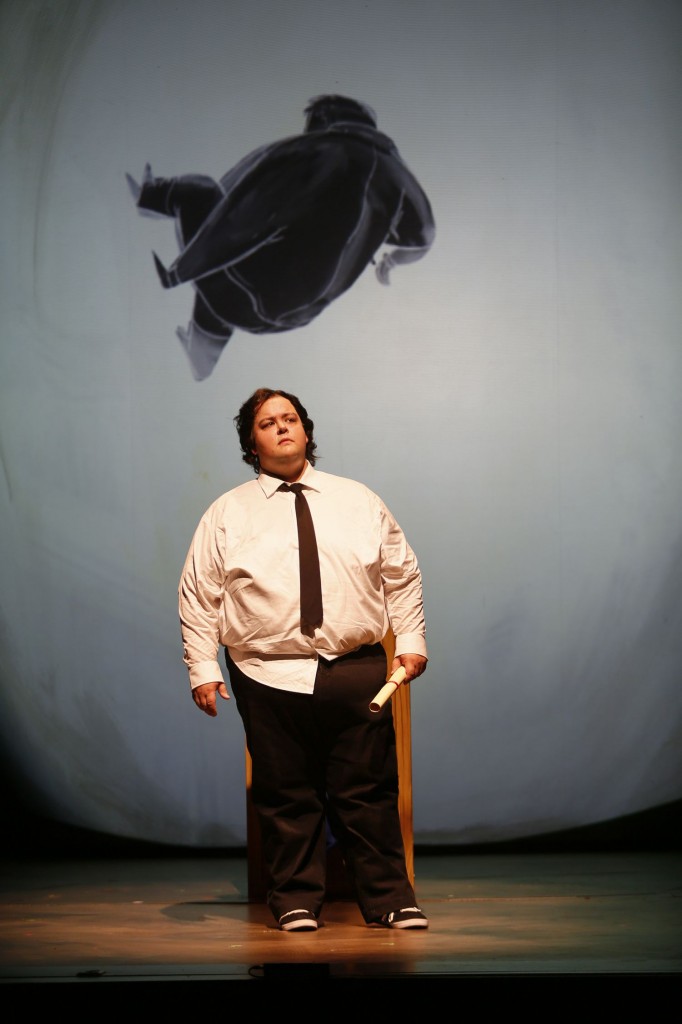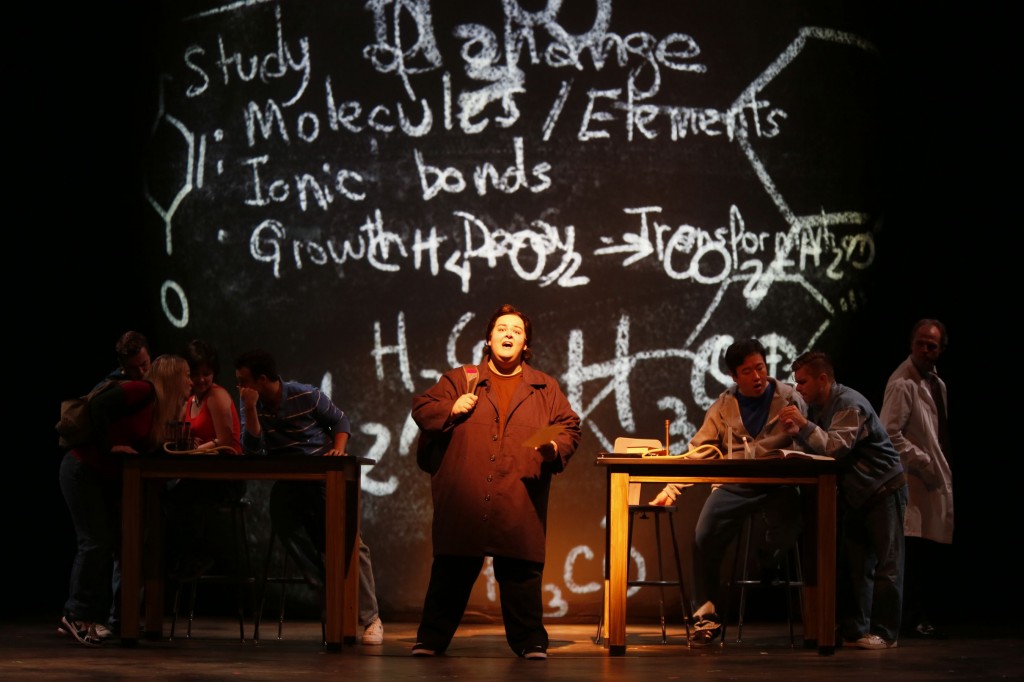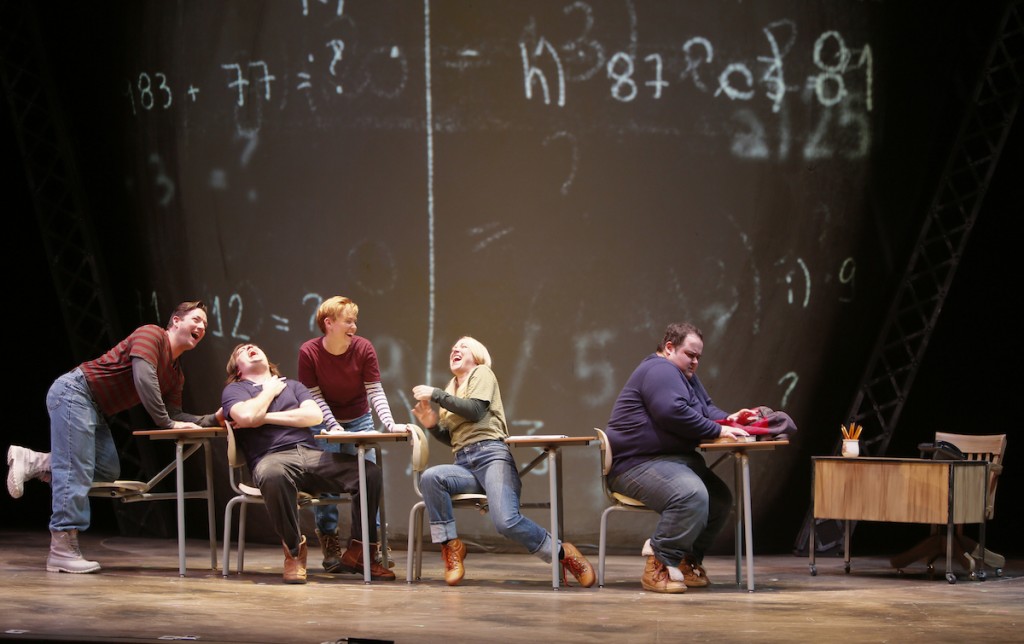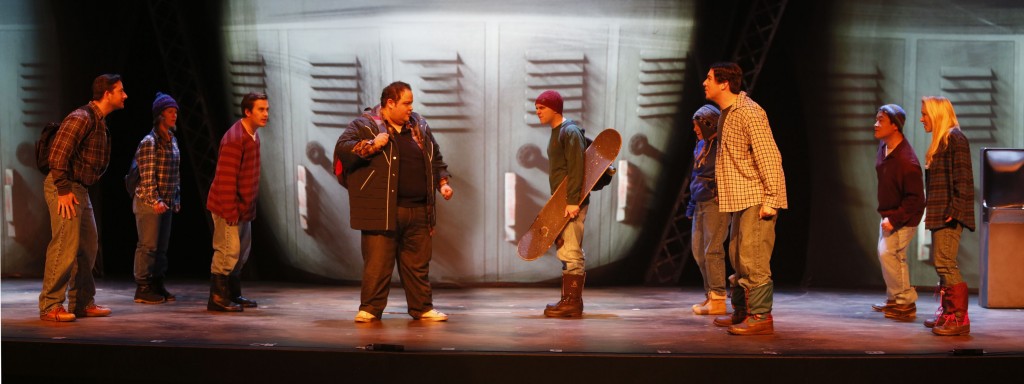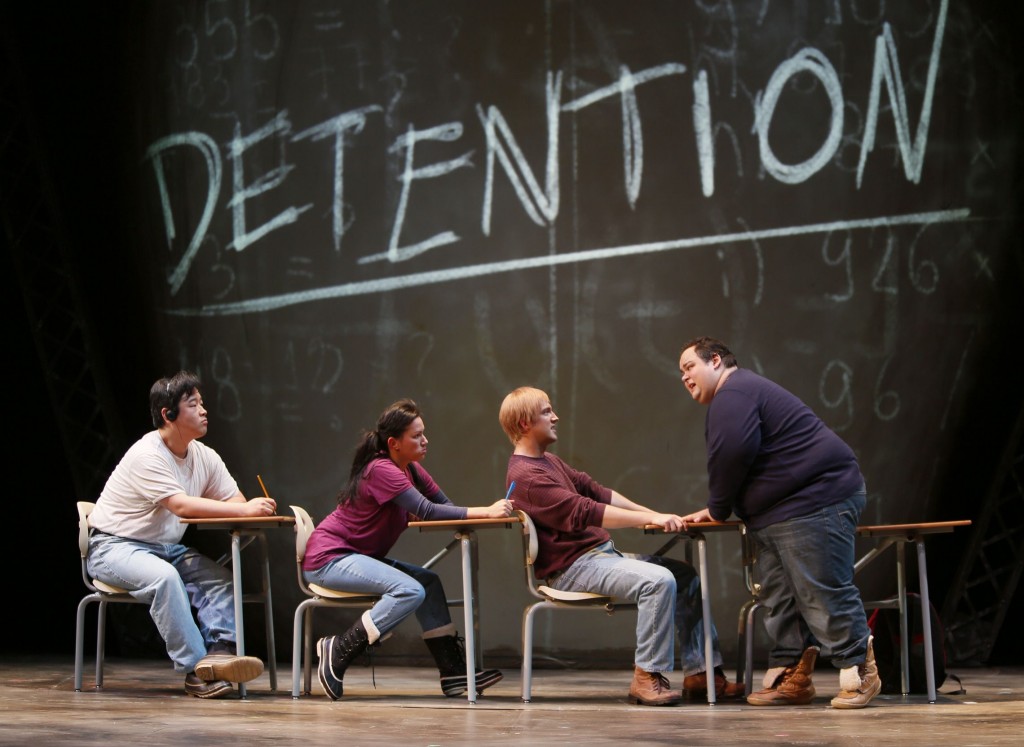
Seven seasons of Opéra de Montreal have trained me to read a season brochure cynically and only with chemical support. I must find satisfaction in the absence of disaster rather than the chance of a triumph. Objectively, of course, this is awful; I love opera but have to travel for interesting productions. But I am much calmer now.
Unfortunately, these low expectations have infected my thinking about big Canadian companies in general. They look like an unvaried mass of beige, a musical suburb, and I am repulsed. Maybe it would be different if I could easily attend smaller, innovative productions from companies like Tapestry Opera. Probably. (I’ve covered the launch of some young companies in Montreal too, but they inevitably and immediately stage Figaro, and then I get depressed again.)
Occasionally the major companies offer surprises, like Sellars’ Hercules, that pair intelligent directing with vocal talent, but a few creative productions don’t compensate for the diarrheal flood of zombie opera, let alone for the lack of significant commissions. Here the big companies have acted like cowards—Hadrian is a good example. John Terauds covered it’s announcement in 2013 with far more balance that I can summon, and Jenna Douglas talked to librettist Daniel MacIvor in July.
So, I was shocked when I heard that Vancouver Opera had hired Shayne Koyczan to adapt his memoir of childhood bullying, Stickboy. I felt a nearly forgotten sensation, a dangerous feeling: hope.
That was two years ago. Stickboy premiered on October 23 in Vancouver, and I threatened people at the airport until they let me on a plane.
Night of, Vancouver was an appalling puddle, but inside the downtown Playhouse a crush was steaming under lights from the reptile pavilion. A sold-out show had brought out the healthy and the youngish. Immobilized and blind, we started talking to each other. I asked my neighbour if she’d been to the opera before. “No.” She replied. “But I wanted to see this.”
The last time I heard this answer was at the University of Toronto’s one-night-only Rob Ford: The Opera, and there too, an unusual crowd hadn’t come for an opera—they came for a story.
Stickboy recounts Koyczan’s childhood struggle from victim to bully, from Yellowknife to Penticton, and it is staged on a rotating plate against three projection screens. Like the video that catapulted Koyczan to international fame and led to his performance at Vancouver’s Olympics, these screens present animations by the Giant Ant studio. Along with spoken-song dialogue, Koyczan’s voiceovers, choral exclamations, sound effects and musical emphasis, the animated clips are one of the fundamental units of the work.
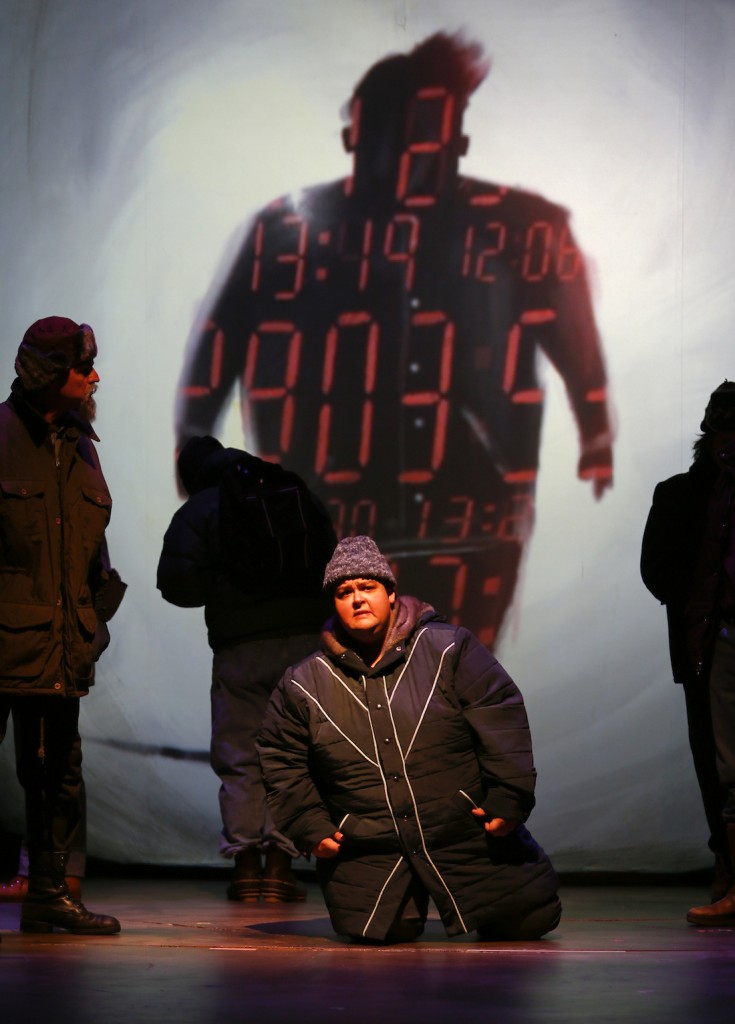
To hammer the point home, these blocks often repeat and mirror what happens onstage. It works best when the effects are used sparingly. Projections show what the boy sees through his gun sights: an empty soda can changes, at the last second, into the face of his tormentor. He makes the shot. It’s the only shot he makes.
When they are layered together, the dancing, sound effects, animations, and voice overs can seem like a no-confidence vote in the music’s ability to hold our attention. Considering the music, this is understandable, but even so, they occasionally distract and even insult the audience, like when a calming effort from Grandma is reduced to four giant projected words as profound as a talk-show mantra.
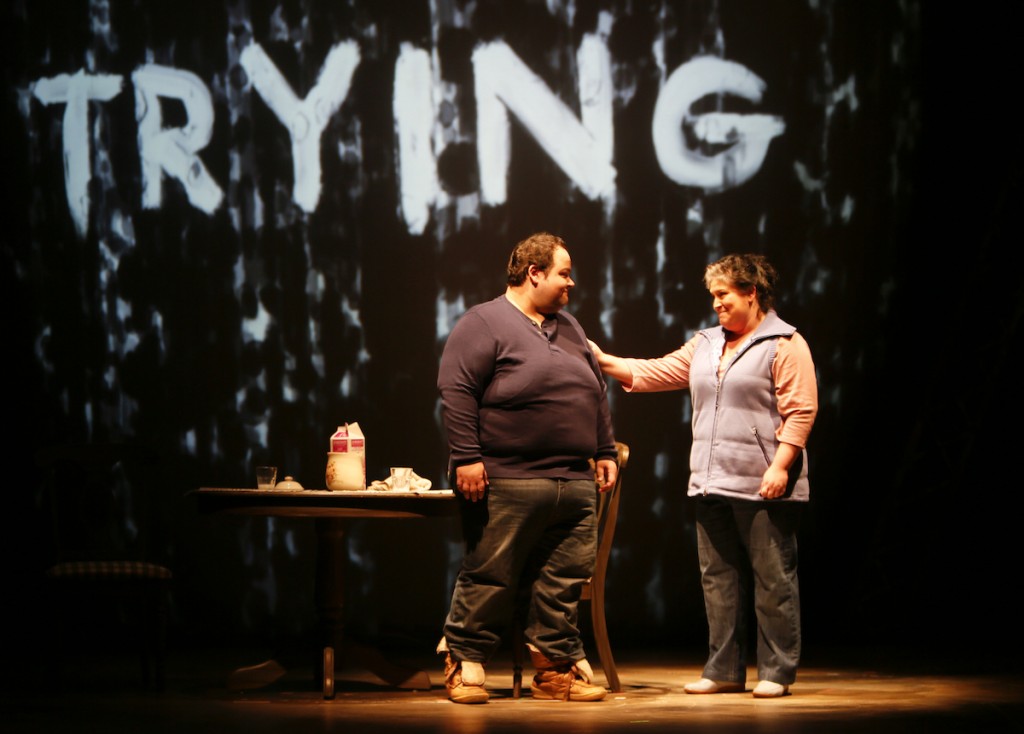
The difference is between a nervous and a precise use of these tools, which can be charming and exciting, too. The Boy’s fantasy of blowing his bullies away with super-breath is brilliantly brought to life by gymnasts in the chorus. And the excess also creates the opportunity for two contrasting moments of astonishing focus—the only times when the music rose above pastiche for me. Both featured Megan Latham as Grandmother and Sunny Shams as the Boy.
The first was an orchestral interlude while they passed notes under the door after a bad day, and it ended beautifully with the two humming and holding hands through the door frame. The other is a hospital scene; the boy has grown distant and started cutting himself, and he has cut too deep. This painful scene is the only one where Shams’s tenor and Latham’s honey-in-your-tea mezzo are released to anything like full power. Her “Love lives here” builds to a heartbreaking rupture in the boy’s self-control and a remarkable duet where he finally tells Grandma how lost he is, with one of Koyczan’s peanut butter and caviar phrases: “I don’t know how to be a person.”
Koyczan’s unpredictable words make Stickboy worth hearing rather than just applauding from afar as good news for opera. Lines like “does he wear his hate to bed?” can substitute for the missing musical earworm—this is an opera you might quote, but you will never whistle. The libretto is a solid skeleton and this production can be taken as a draft of the meat. Work should continue. Koyczan was in the audience on Saturday night thinking about some edits. Will composer Neil Weisensel and director Rachel Peake be as diligent?
They are preparing a 45-minute piano cut of Stickboy for school performances, and the program brochure detailed the production’s two-year history of workshops, talks, and exhibitions—a canny strategy of building interest and engagement with new work. This is how you meet new audiences. Staging it at the Playhouse, where VO premiered The Architect by David K. MacIntyre and Tom Cone in 1994, also reduced the financial risk of unsold seats. Clever management.
Vancouver should be proud of this earnest and unafraid opera, but a week later I can’t shake the feeling that it may be only incidentally operatic. Apart from the door and hospital scenes, the music is less important than the animations, so I wonder how long Stickboy the opera will survive.
And then I catch myself. Why compare it to the eternal repertoire that hangs around opera’s neck like a stone? Perhaps it is just as important to create new work that only matters for a little while, especially if it matters a great deal.
After the performance, a woman introduced herself as a nurse and asked if I was writing about the opera. I told her I was. “Tell them,” she said. “That this could change lives.”
- REPORT | Ukrainian Pianist Crowned Winner Of 2022 Honens Competition - October 29, 2022
- REPORT | The 10th Honens International Piano Competition: Finals I - October 28, 2022
- REPORT | The 10th Honens International Piano Competition: Semifinals IX-X - October 25, 2022
- REPORT | Ukrainian Pianist Crowned Winner Of 2022 Honens Competition - October 29, 2022
- REPORT | The 10th Honens International Piano Competition: Finals I - October 28, 2022
- REPORT | The 10th Honens International Piano Competition: Semifinals IX-X - October 25, 2022

